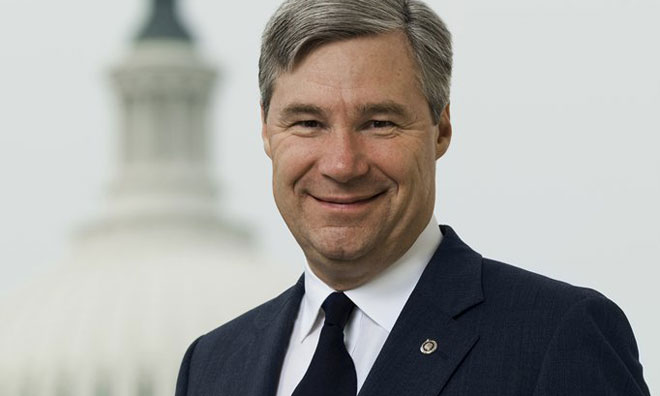
Hearing Focuses on Political Activities of Tax-Exempt “Social Welfare” Groups
The chairman of a Senate Judiciary subcommittee wants to know what the Obama administration is doing to crack down on alleged abuses of 501(c)(4) tax-exempt status, saying that Super PACs and other organizations are concealing political activities that are prohibited under campaign finance laws.
Officials from the Justice Department (DOJ) and the Internal Revenue Service (IRS) were questioned last week in a Senate Judiciary subcommittee hearing about their enforcement of campaign finance laws relating to 501(c)(4) tax-exempt groups and Super PACs.
After the Supreme Court opened the floodgates to big money in elections in its disgraceful Citizens United decision, big donors like to use these nonprofit entities to launder campaign spending and hide their identities.
Sen. Sheldon Whitehouse (D-RI), who chairs the Senate Judiciary Subcommittee on Crime and Terrorism, scheduled the hearing to examine enforcement of laws that prohibit coordination between outside groups and candidates and the use of shell companies to hide donor identities, as well as whether 501(c)(4) tax-exempt groups are being held accountable for seemingly false statements about their political activities.
Whitehouse said the 501(c)(4) designation gives tax-exempt status to entities that are “operated exclusively to promote social welfare,” he said. “This promotion of social welfare is specifically forbidden to include ‘direct or indirect participation or intervention in political campaigns on behalf of or in opposition to any candidate for public office.’
“That seems clear enough, but after the Supreme Court opened the floodgates to big money in elections in its disgraceful Citizens United decision, big donors like to use these nonprofit entities to launder campaign spending and hide their identities,” Whitehouse said.
Testifying at the hearing, Mythili Raman, acting assistant attorney general for the criminal division of DOJ, said the department is committed to investigating and prosecuting those who willfully violate campaign finance disclosure requirements and contribution limits, Politico reported. She acknowledged, however, that “the recent changes in our campaign finance laws have made it more difficult for us to combat the ability of individuals and entities to buy influence over elections and conceal their conduct.”
Both Raman and Patricia Haynes, IRS deputy chief of criminal investigation, declined to comment on whether federal authorities had initiated any probes into possible abuse of 501(c)(4) status.
“I don’t have any information that I can share on any cases like that,” Haynes said.
Sen. Sheldon Whitehouse (D-RI), the head of the Senate Judiciary Subcommittee on Crime and Terrorism. (Official press photo)






Comments